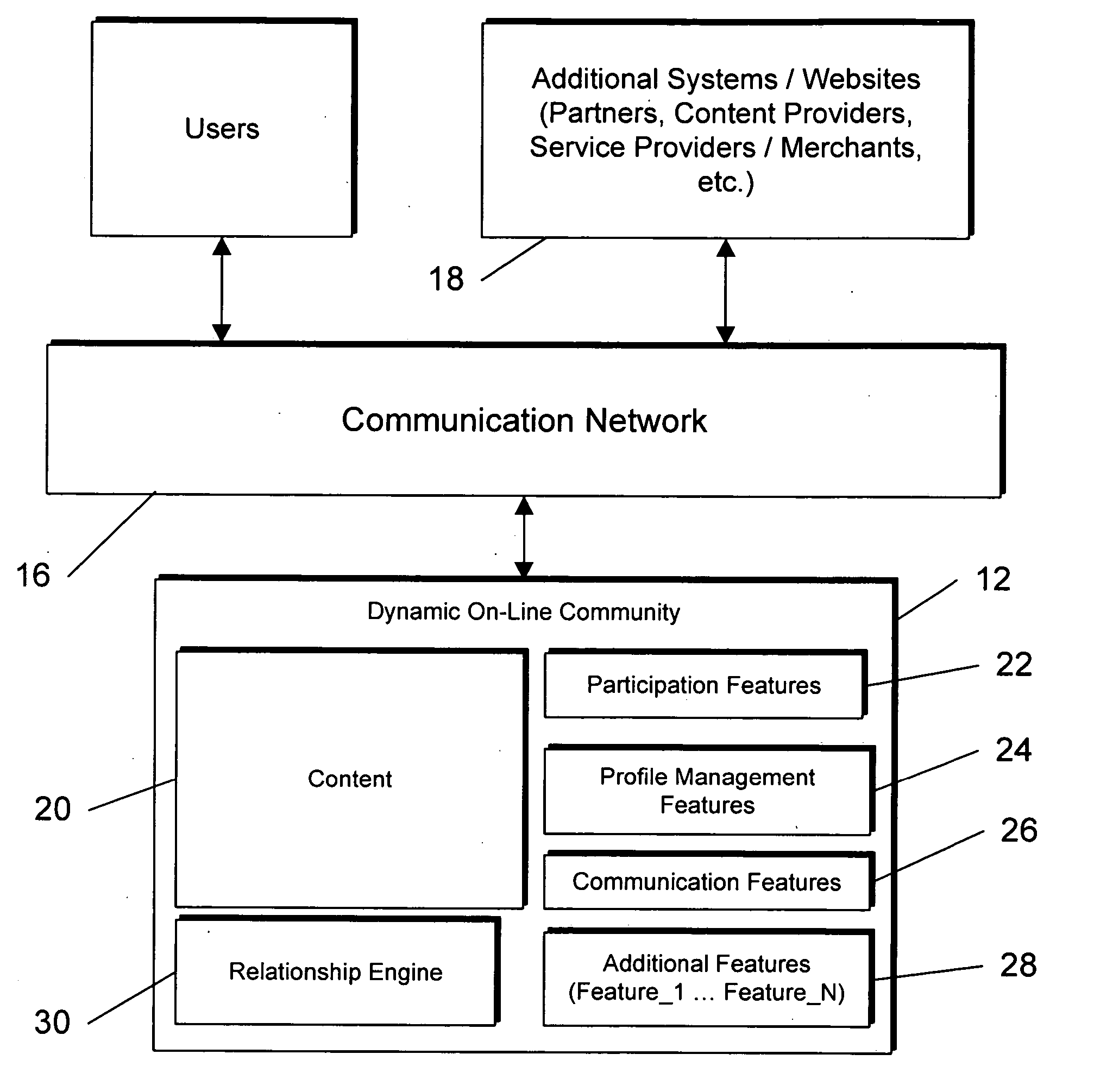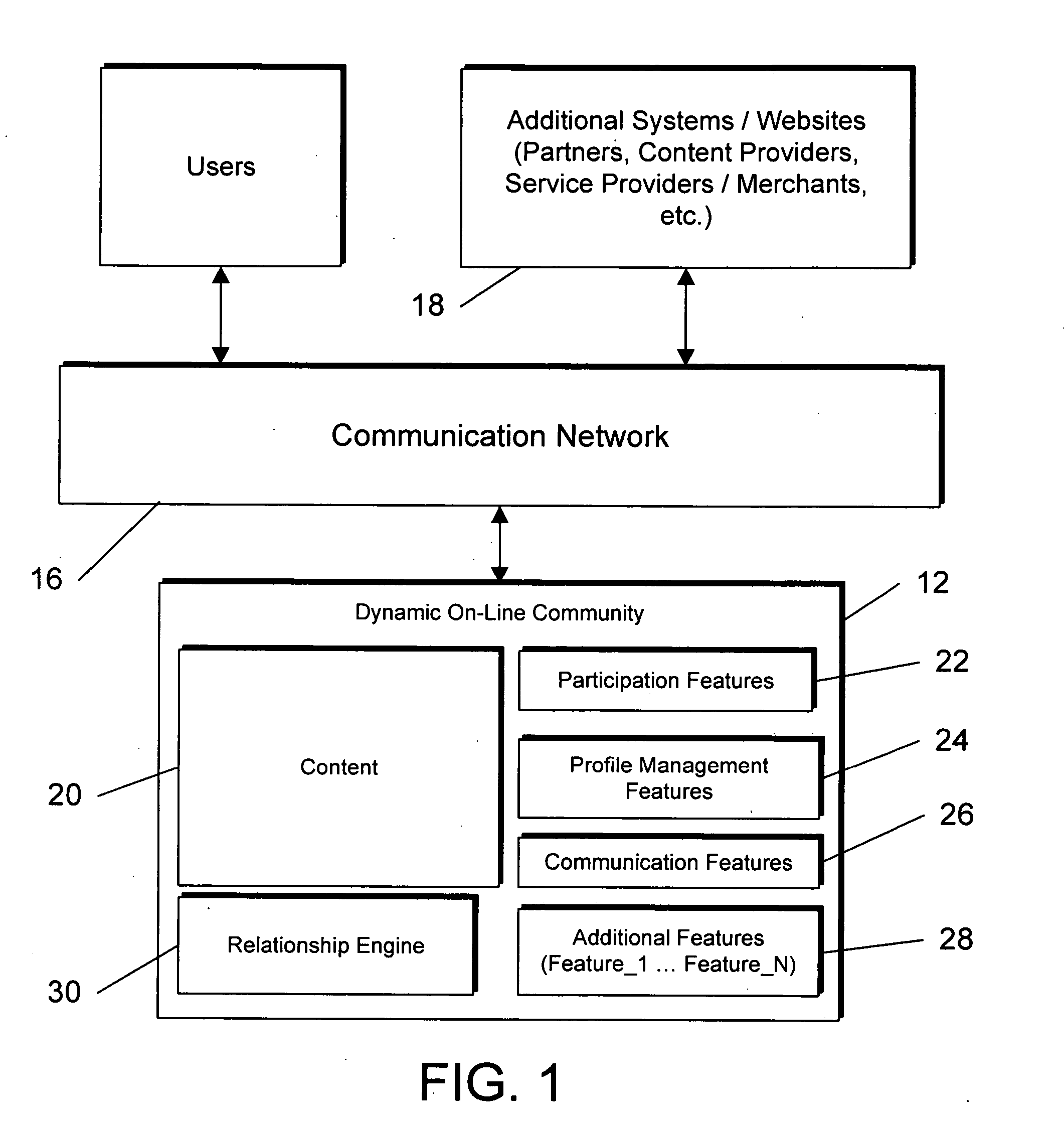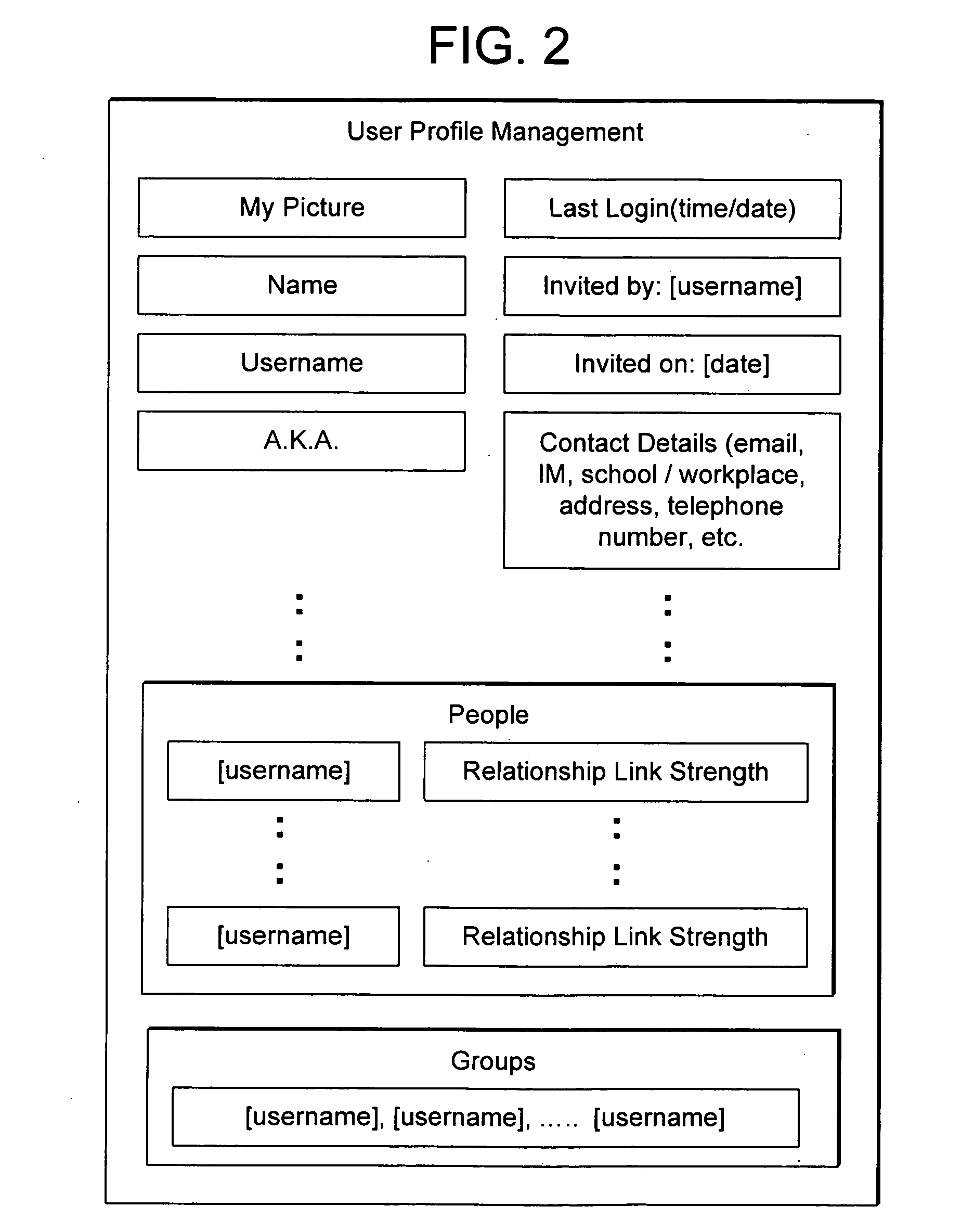System and method for dynamically generating, maintaining, and growing an online social network
a social network and dynamic generation technology, applied in the field of systems and methods for automatically generating, maintaining, growing and maintaining an online social network, can solve the problems of system not providing sophisticated, implementations that gained more than casual popularity, and the greatest barrier to further evolution of on-line communities and related services/functions, etc., to achieve the effect of increasing functionality and growing popularity
- Summary
- Abstract
- Description
- Claims
- Application Information
AI Technical Summary
Benefits of technology
Problems solved by technology
Method used
Image
Examples
Embodiment Construction
[0019] The system and method of the present invention advantageously overcome the drawbacks of previously known on-line community and social network systems. The present invention relates to a system and method for implementing an intelligent on-line social network with numerous beneficial features for its members, that automatically grows and increases in functionality as a result of user's routine activities on the network's website, and without requiring the users to make any additional effort. The novel social network and community system allows groups of users in various social relationship categories (friends, acquaintances, relatives, co-workers, colleagues, or any combination thereof) to socialize with each other primarily through on-line sharing of their content data (e.g., images, text, Blogs, video, audio, etc.).
[0020] The core concept of the present invention is based on the fact that on-line users have short attention spans and that it is very difficult to get on-line ...
PUM
 Login to View More
Login to View More Abstract
Description
Claims
Application Information
 Login to View More
Login to View More - R&D
- Intellectual Property
- Life Sciences
- Materials
- Tech Scout
- Unparalleled Data Quality
- Higher Quality Content
- 60% Fewer Hallucinations
Browse by: Latest US Patents, China's latest patents, Technical Efficacy Thesaurus, Application Domain, Technology Topic, Popular Technical Reports.
© 2025 PatSnap. All rights reserved.Legal|Privacy policy|Modern Slavery Act Transparency Statement|Sitemap|About US| Contact US: help@patsnap.com



